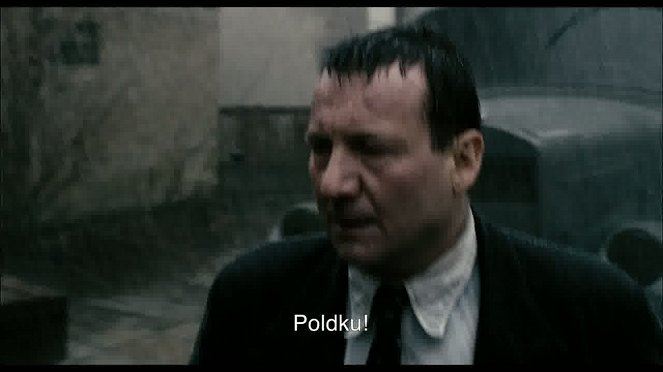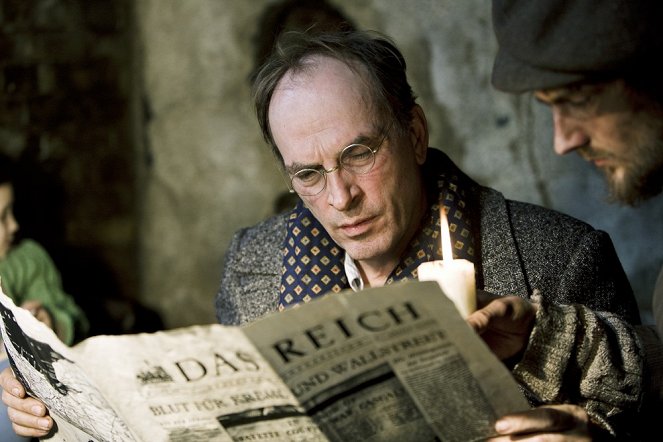Director:
Agnieszka HollandGuión:
David F. ShamoonCámara:
Jolanta DylewskaMúsica:
Antoni Komasa-LazarkiewiczReparto:
Robert Więckiewicz, Benno Fürmann, Agnieszka Grochowska, Maria Schrader, Herbert Knaup, Marcin Bosak, Julia Kijowska, Jerzy Walczak, Oliwer Stańczak (más)Sinopsis(1)
En 1943, la ciudad polaca de Lvov vive sumida en la miseria debido a la ocupación nazi. Un día, Leopold Socha, un mezquino usurero, se encuentra con un grupo de refugiados judíos y los oculta con su dinero en el laberinto de las alcantarillas de la ciudad. De esta manera deja de interesarse sólo por sus negocios, y su vida experimenta un cambio esencial. (Alta Films)
(más)Videos (7)
Reseñas (2)
Agnieszka Holland's film is too good to be used as a basis for ironically glossing over the cliché that it is enough to have a Jew in our bed, but Poles must have sewers full of them. The film really doesn't deserve something like this, but because of its very balanced form, it can bear such a thought. I am certainly in favor of the Czech perception, which appreciated the black humor and the fascination with darkness. Holland is simply good, and if she's backed by such a strong theme and working with such quality people from all over the world, it would be a surprise if she didn't succeed. But she also overcame Europe and brought a new dimension to the chapters of World War II. The actors I appreciated the most were Maria Schrader and Herbert Knaup.
()
I was really looking forward to this movie by Agnieszka Holland. A very difficult topic and quite an unusual execution. But I had a big issue with it. On the other hand, I’m not sure if it could have been filmed in a different way. Maybe it could have, but then it would have lost its brutally confined feel. Claustrophobia, stress and absolute suspense. But I didn’t like the unnecessary camera shakes, the strange lighting and most of all, I didn’t like the sex scenes that I could have done without. Somehow, I can’t imagine that anyone would be in the mood after months spent underground. In any case, the final scene that explained the overall ending of the WWII story has left me with a memory of a person in this movie who was at least being honest. At first, he wanted to make some buck off hiding the Jews, but then he understood the situation and money stopped being a concern. Of course, I immediately thought of Schindler’s List that was conceived in a way that made Schindler look like the people’s man. But Spielberg surely knows that he wasn’t such a Samaritan. And you definitely can’t deny that this movie is realistic, no matter what all else. And I truly appreciate Agnieszka for that.
()




Anuncio